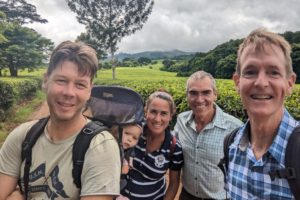This morning, one of the neuroradiologists I work with in Malawi asked an interesting question. When reviewing a brain MRI scan from a child with cerebral malaria, she noticed that the olfactory area “lit up.” It was not normal. Olfaction is the scientific word for the sense of smell. Her question? “In children who survive cerebral malaria that we had seen, had we ever detected a decreased ability or inability to smell?”
No, we had not. Though we have never seen this, we didn’t even know we should look. Cerebral malaria typically affects children less than 5 years old. Detecting a decreased sense of smell is challenging in older children and extremely difficult in those who are younger. But we had not even considered it.
How many other things in my professional and personal life do I not know that I don’t know?
This short conversation brought to mind the phrase “There are things we don’t know we don’t know.” Donald Rumsfeld (ugh) made this phrase famous. Today its meaning became important.
We know that even with optimal care, one in 6 children diagnosed with cerebral malaria die. We know that children who survive the disease are often left with abnormal neurological outcomes including epilepsy, cognitive problems, movement issues (cerebral palsy), and behavioral abnormalities. We know that many of the neurological abnormalities we see at hospital discharge clear with time, sometimes very rapidly.
The most dramatic of these has to do with the sense of sight. We sometimes discharge children from the hospital and they are completely blind. They return for their routine one month follow-up seeing normally. Their parents are often unfazed by this fortunate development. I am always shocked. There is no other disease that routinely behaves this way, where severe neurological deficits rapidly, completely, and permanently resolve. We know we don’t know why the rate of neurological abnormalities in cerebral malaria survivors is so high. We know we don’t know why (or how) these abnormalities are often rapidly reversible.
In contrast, I never considered whether children surviving the disease might have a decreased sense of smell. It did not enter my worldview. How many other things in my professional and personal life do I not know that I don’t know?






